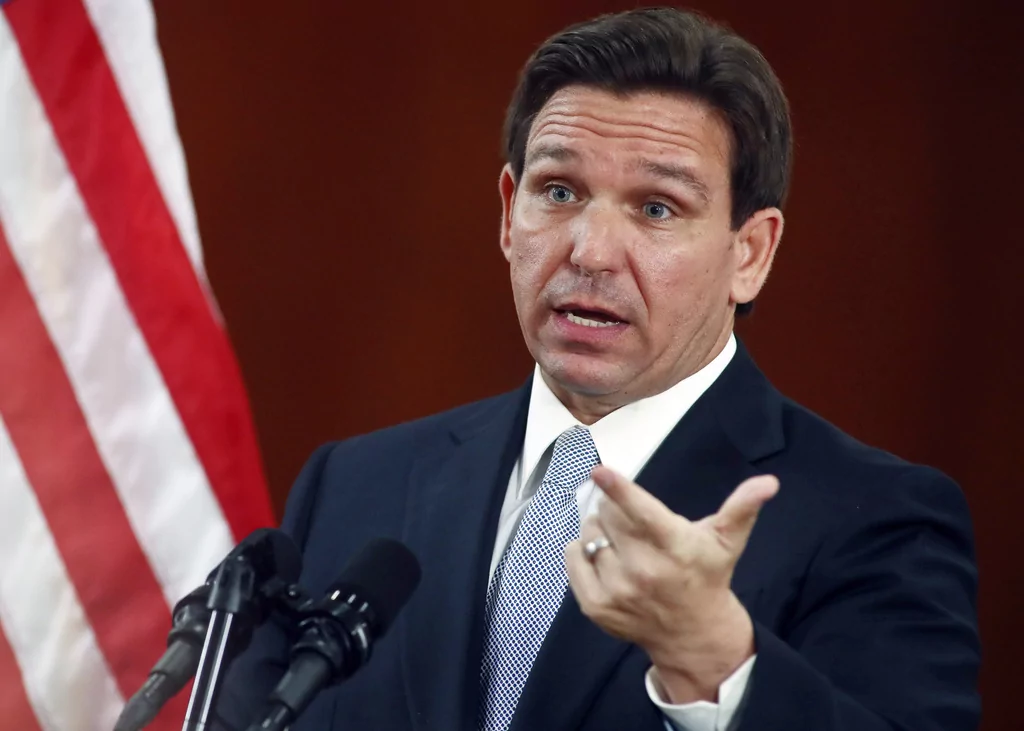We support our Publishers and Content Creators. You can view this story on their website by CLICKING HERE.

Children across Florida could be just weeks away from having their profiles deleted on social media sites such as TikTok, Facebook, Snapchat, and Discord.
A new law, which is set to go into effect on Jan. 1, 2025, prohibits children 14 years old and under from having profiles on social media sites, although whether it’s enforced right away is another story.
It’s part of a sweeping social media bill that would make the Sunshine State the first in the nation to effectively bar young people from holding accounts on “addictive” platforms. For 14- and 15-year-olds, social media platforms must require parental permission before allowing them to set up accounts.
Standing in the state’s way is a wall of litigators from some of the world’s most powerful social media companies who are prepared to fight the law’s legality in court. They say restricting access is a First Amendment matter and, therefore, should be protected.
Florida’s bill had bipartisan support in the legislature, and state lawmakers were largely in unison when they called the apps “addictive” and said they harmed younger users.
“You can have a kid in the house safe, seemingly, and then you have predators that can get right in there into your own home,” Gov. Ron DeSantis (R-FL) said. “You could be doing everything right, but they know how to get and manipulate these different platforms.”
The bill was Florida’s Republican House Speaker Paul Renner‘s top legislative priority.
“A child in their brain development doesn’t have the ability to know that they’re being sucked into these addictive technologies and to see the harm and step away from it, and because of that, we have to step in for them,” Renner said at the bill signing.
Florida’s move followed other GOP-led states amid a national push to crack down on children’s access to online platforms over safety fears, including interaction with child sex predators.
DeSantis has said he believes social media is a “net negative” for minors but that with diligent parental supervision, social media could be used for good.
“You’ve got to strike that proper balance when you are looking at these things between policy that is helping parents get to where they want to go versus policy that may be outright overruling parents,” he said.
Social media platforms could be fined up to $50,000 per violation if they “knowingly or recklessly” violate the law.
Sites that do not terminate accounts after being requested to do so by the minor or a parent or guardian may be liable for up to $10,000 in damages plus attorney fees and court costs.
The bill also prohibits minors from pornography or sexually explicit websites and requires age verification to access these sites.
While parent groups applauded the new legislation, some Democratic lawmakers said it crossed a line.
“This bill goes too far in taking away parents’ rights,” Rep. Anna Eskamani (D-FL) said. “Instead of banning social media access, it would be better to ensure improved parental oversight tools, improved access to data to stop bad actors, alongside major investments in Florida’s mental health systems and programs.”
Critics have already called the law unconstitutional, and the tech industry has vowed not to go down without a fight. It has also signaled it is ready to spend whatever it takes to fight it.
NetChoice and the Computer & Communications Industry Association, which includes Google and Meta, filed a First Amendment challenge in October.
“America’s vigorous First Amendment protects individuals and businesses online and offline,” said Chris Marchese, director of the NetChoice Litigation Center. “We urge the Court to safeguard the internet from government censorship by striking down these unconstitutional laws. The NetChoice & CCIA cases are essential to protecting free speech on the internet and prohibiting the government from interfering with the marketplace of ideas.”
Federal courts blocked less-restrictive youth social media laws enacted last year in Arkansas and Ohio.
Judges there said the statutes would encroach on social media companies’ free speech rights to distribute information. They also said it impinged on young people’s rights to have access to it.
“This law would present a barrier for anyone who wants to access lawful speech on the internet,” NetChoice Associate Director of Litigation Paul Taske said.
Even though the law technically goes into effect on Jan. 1, 2025, there are still a lot of unknowns surrounding it.
Florida Attorney General Ashley Moody’s office announced last month that the state would not be enforcing the law on major social media platforms until the court rules on a motion for preliminary injunction.
CLICK HERE TO READ MORE FROM THE WASHINGTON EXAMINER
“In order to obtain a full record and obtain discovery, Florida agreed to stay enforcement of its statute until the court rules on the motion for preliminary injunction,” Chase Sizemore, press secretary for the office, said in a statement.
A hearing is set for Feb. 28, 2025.

 Conservative
Conservative  Search
Search Trending
Trending Current News
Current News 





